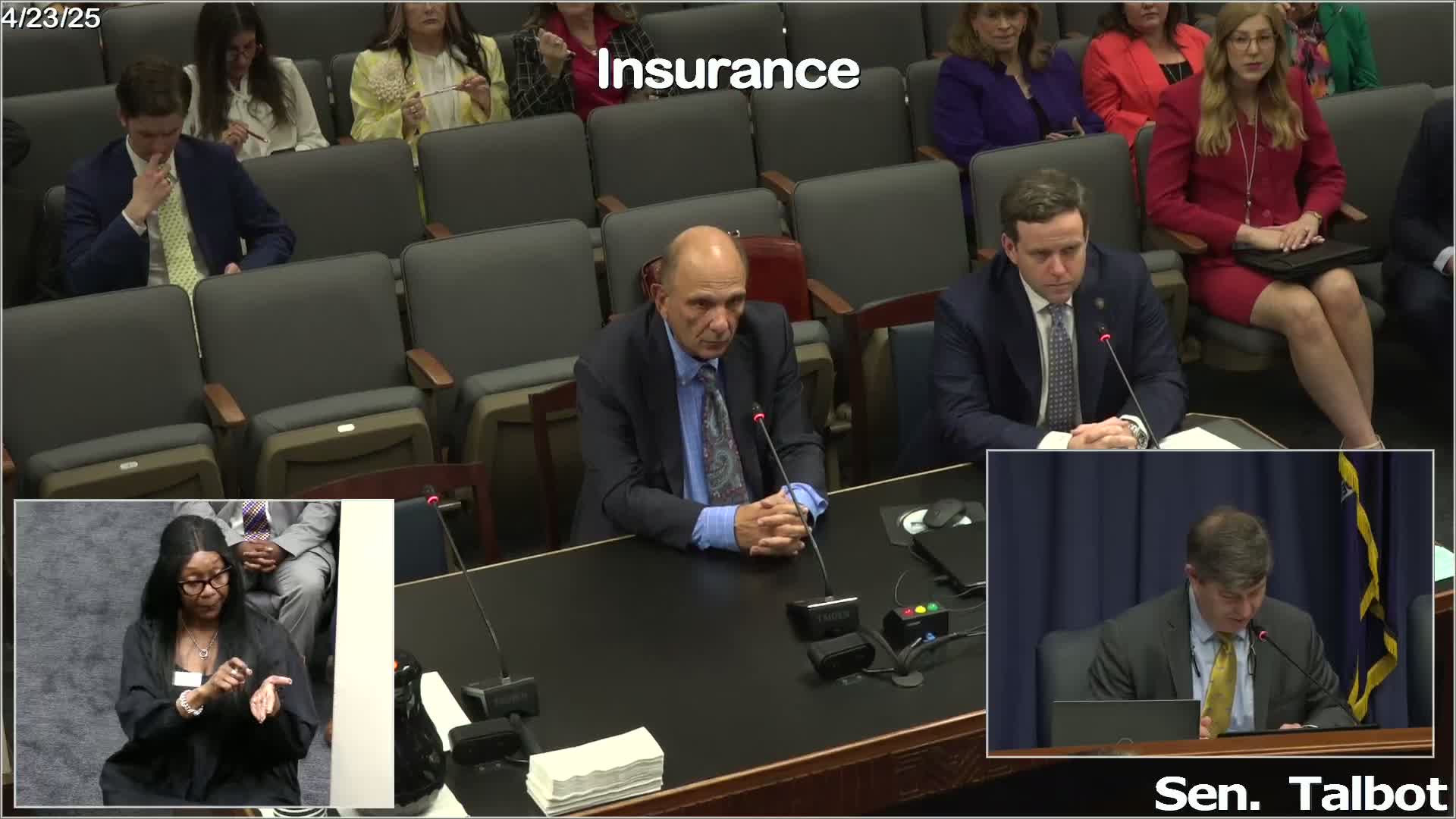Senate committee reports bill to require insurer coverage for proton cancer therapy
Get AI-powered insights, summaries, and transcripts
Subscribe
Summary
The Senate Insurance Committee reported Senate Bill 129 with amendments after hearing from a patient and sponsor testimony that insurers are denying proton therapy despite clinical guidelines.
Senate Bill 129, which would require health insurers to cover proton beam therapy for cancer when recommended under clinical guidelines, was reported with amendments by the Senate Insurance Committee on April 23.
The bill’s sponsor, Senator Presley, told the committee the legislation would bar insurers from denying coverage for proton therapy when treatment is recommended in the American Society for Radiation Oncology practice guidelines and that committee amendments clean up the statutory language.
Skeeter Saleem, an attorney who described himself as a cancer survivor and a member of the UL board, testified about choosing proton therapy at MD Anderson and the difficulty he faced obtaining insurer approval. “It’s like taking a rifle and shooting it at the tumor,” Saleem said, describing proton therapy’s more targeted effect compared with traditional radiation. He said insurers denied coverage for his treatment multiple times, and he ultimately paid out of pocket. “When you have cancer growing in your body, do you have 6 months to wait through an appeal process?” Saleem asked.
Senator Bass asked whether the fiscal note or amendments addressed situations where insurers classify some uses as not medically necessary. Senator Presley responded that ASTRO’s guidelines outline three categories of indications for proton therapy—one category generally approved, a second category less often approved, and a third category that insurers almost never approve—and the bill aims to ensure that when a treating physician recommends proton therapy consistent with those guidelines the patient can obtain it.
Committee members adopted two technical amendments and a language amendment that references the ASTRO practice guidelines. Senator Bass moved to report the bill favorably as amended; the chair said there was no opposition and the committee reported SB 129 with amendments.
Support and opposition noted on the committee record included representatives from Willis-Knighton Health and the Louisiana Association of Health Plans; the Department of Insurance staff were listed as available to provide information if requested.
The committee action was procedural: the measure was reported with amendments and sent forward from the Senate Insurance Committee. The transcript records no roll-call tally; the chair announced the motion passed with no opposition.
Why it matters: Advocates and the bill sponsor described proton therapy as a clinically accepted option with fewer long-term side effects for some patients, and witnesses pressed for quicker access than is often available under insurer prior-authorization and appeal processes.
What remains: The committee adopted technical and clarifying amendments referencing ASTRO guidance; the bill’s future steps will follow the Senate’s regular calendar.
